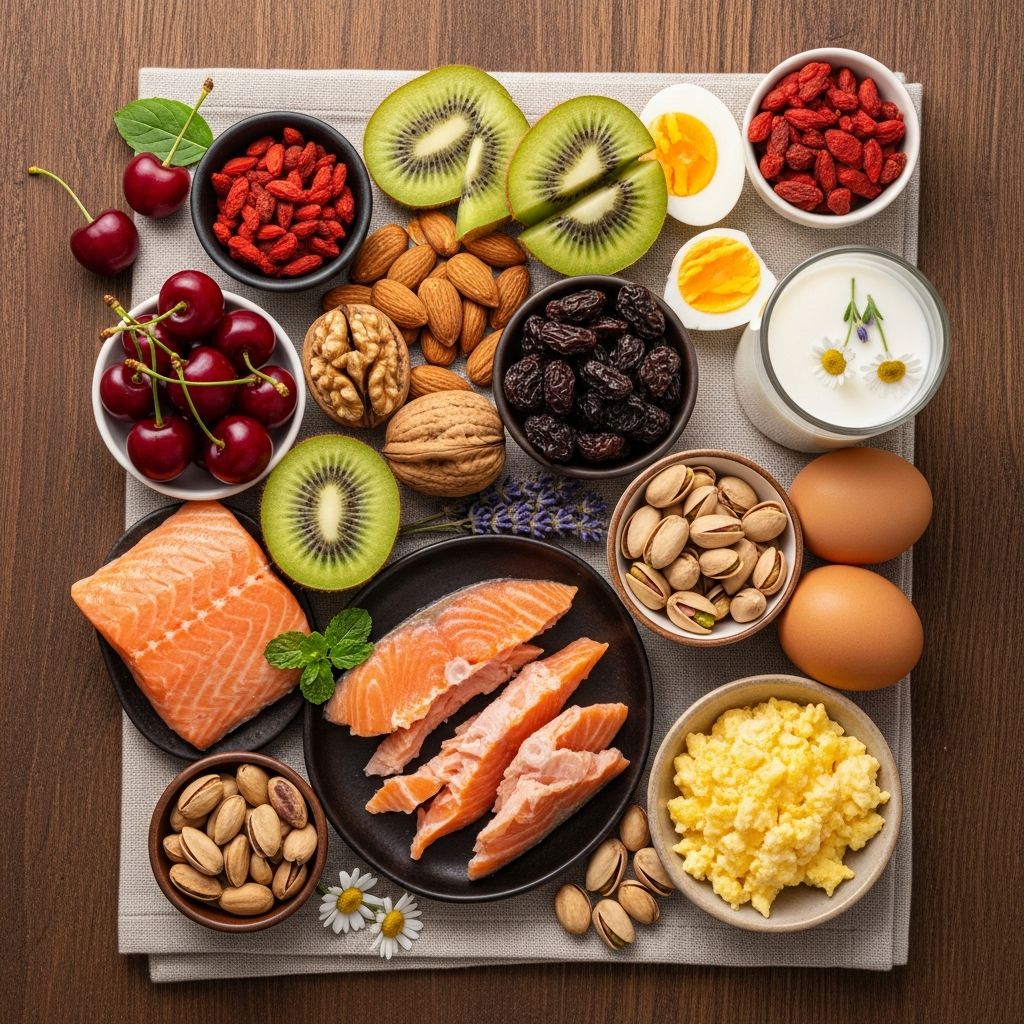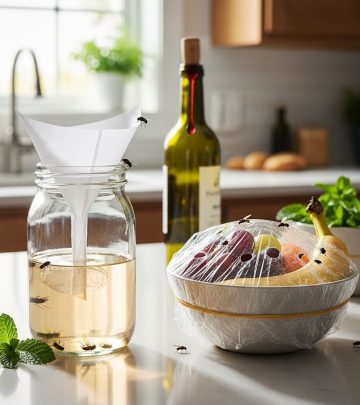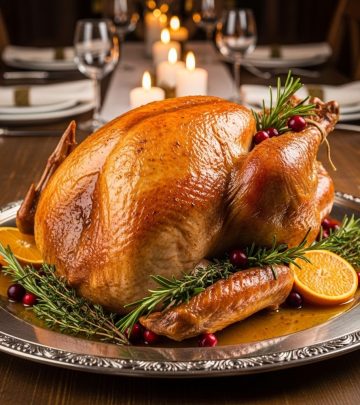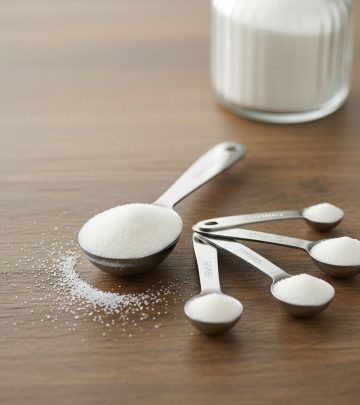16 Foods High in Melatonin for Better Sleep
Explore the best melatonin-rich foods and learn how your diet can naturally support restful, restorative sleep every night.

Struggling with sleepless nights or looking to fall asleep more easily? You may have heard of melatonin supplements, a popular remedy for sleep troubles. However, what you eat can also play a significant role in your body’s melatonin production. Many foods naturally contain melatonin and other sleep-promoting nutrients, making it easier to wind down and achieve restorative sleep. Whether you’re aiming to improve your bedtime routine or searching for natural ways to enhance your sleep quality, understanding which foods are high in melatonin is essential. Let’s explore the science behind dietary melatonin, the top melatonin-rich foods, and practical tips for integrating them into your evening meals.
What is Melatonin?
Melatonin is a hormone produced by the pineal gland in the brain, primarily at night. It regulates your sleep-wake cycle, telling your body when it’s time to rest. Beyond supplements, melatonin occurs in various foods, which can naturally raise your blood levels of this sleep-promoting hormone. Research indicates that consuming melatonin-rich foods may improve sleep quality, help with insomnia, and support circadian rhythm health.
How Dietary Melatonin Affects Sleep
While melatonin produced in your body has a clear role in sleep, dietary melatonin’s effects can be more subtle. Foods with melatonin often also contain nutrients such as vitamin B6, tryptophan, magnesium, and omega-3 fatty acids, all of which interact in pathways that support healthy sleep. It is important to remember that the melatonin content in food is not standardized, and factors like ripeness, storage, cooking method, and time of consumption can influence levels. Nevertheless, including certain foods can be a delicious way to nudge your body towards a better night’s rest.
Top Foods Rich in Melatonin
Here are 16 science-backed foods that are naturally high in melatonin and may help you get better sleep:
- Pistachios
- Almonds
- Tart Cherries
- Tart Cherry Juice
- Goji Berries
- Eggs
- Milk
- Fatty Fish
- Mushrooms
- Tomatoes
- Oats
- Corn
- Bananas
- Pumpkin Seeds
- Cottage Cheese
- Plain Yogurt
1. Pistachios
Pistachios stand out as a top natural source of melatonin, containing much higher levels than most nuts. In addition to melatonin, they are packed with vitamin B6, fiber, omega-3 fatty acids, and powerful antioxidants. Vitamin B6 is crucial for converting tryptophan (an amino acid found in many protein foods) into melatonin. Enjoy a small handful of raw pistachios in the evening as a sleep-friendly snack.
2. Almonds
Like pistachios, almonds contain a decent amount of melatonin, making them another excellent bedtime choice. They offer heart-healthy fats, magnesium, protein, and antioxidants that collectively promote relaxation and health. Choose raw or lightly roasted almonds for the highest melatonin content.
3. Tart Cherries
Tart (Montmorency) cherries are popular in sleep research due to their natural melatonin content and high concentrations of anti-inflammatory polyphenols. Eating fresh or dried tart cherries regularly has been linked with increased sleep duration and improved sleep quality, especially in older adults and insomniacs. Enjoy them as a snack, dessert topping, or in smoothies.
4. Tart Cherry Juice
Although tart cherry juice contains less fiber than whole cherries, it packs a potent dose of melatonin in liquid form. Some small studies have shown that adults who drink tart cherry juice experience longer sleep times and higher sleep efficiency. However, be cautious: tart cherry juice can be high in sugar and calories, so limit your serving to 4–8 ounces in the evening.
5. Goji Berries
Native to China, goji berries have long been prized for their vibrant color and antioxidant power. Modern research confirms that goji berries are also a plant-based source of melatonin, which may help regulate sleep cycles and improve sleep quality. Eat them as a topping over oatmeal, yogurt, or blend into a nighttime smoothie.
6. Eggs
Among animal-based foods, eggs are one of the richest in melatonin. They also provide high-quality protein, iron, and several B vitamins essential for overall health. Add a hardboiled egg to your bedtime snack, or include eggs in a light evening meal to support sleep naturally.
7. Milk
The classic remedy of a warm glass of milk before bed has science to back it up. Milk contains both melatonin and tryptophan. Interesting fact: milk collected from cows at night has higher melatonin levels than daytime milk! For a comforting ritual, try warm milk with a sprinkle of cinnamon or nutmeg in the evening.
8. Fatty Fish
Oily fish such as salmon, sardines, and tuna are not only rich in melatonin, but also offer omega-3 fatty acids, vitamin D, and magnesium. These nutrients all play a role in regulating serotonin and melatonin production. Research shows that people who include fatty fish in their diets tend to fall asleep faster and sleep more deeply. Aim for two to three servings per week for optimal sleep benefits.
9. Mushrooms
Mushrooms (button, portabella, shiitake, and even exotic types like reishi) contain natural melatonin and tryptophan. These fungi are also loaded with protein, fiber, and antioxidants. Saute mushrooms into evening meals or toss them into salads for a healthy, sleep-promoting addition to your plate.
10. Tomatoes
Tomatoes are a lesser-known plant source of melatonin but contain enough to potentially make a difference. Tomatoes also provide lycopene and beta carotene, antioxidants that have been linked to better sleep quality. Enjoy fresh tomatoes in salads, roasted as a side, or in a light sauce for your dinner.
11. Oats
Oats are whole grains loaded with both magnesium and tryptophan, which support healthy sleep, as well as a notable dose of natural melatonin. The complex carbohydrates in oats may also help increase serotonin and calm the nervous system. A small bowl of oatmeal in the evening with milk, banana slices, or nuts can be a fantastic bedtime snack.
12. Corn
Corn, whether eaten off the cob or as part of a light meal, contains natural melatonin and tryptophan. It’s also high in vitamin C, antioxidants, and magnesium. Include a corn-rich salad or soup at dinner to support natural melatonin production overnight.
13. Bananas
Bananas are a sleep-friendly fruit, providing melatonin, tryptophan, vitamin B6, and magnesium. The combination of these nutrients helps produce serotonin and supports relaxation. Bananas also provide “good” carbohydrates, offering sustained energy without a sugar crash. Try a banana with almond butter as a bedtime snack, or, for something different, prepare banana tea by boiling the peel—this releases additional magnesium and supports restful sleep.
14. Pumpkin Seeds
Pumpkin seeds are among the richest plant foods for magnesium, which is critical for GABA production—a neurotransmitter that promotes relaxation. These seeds supply tryptophan and small amounts of melatonin too. A small handful of roasted or raw pumpkin seeds can make a sleep-boosting addition to your evening routine.
15. Cottage Cheese
Cottage cheese, though not as high in melatonin as some plant foods, is a good source of tryptophan, which aids melatonin production. Mixing in tart cherries or goji berries can make this a powerful sleep-friendly, protein-rich snack.
16. Plain Yogurt
Plain yogurt provides both tryptophan and calcium, the latter of which helps the brain use tryptophan to manufacture melatonin. Opt for unsweetened varieties and top with magnesium-rich pumpkin seeds and fruit for a perfect pre-bed snack.
Comparison Table: Melatonin Content in Foods
| Food | Main Supporting Nutrients | How to Enjoy |
|---|---|---|
| Pistachios | Vitamin B6, Omega-3, Fiber, Antioxidants | Snack, trail mix, topping |
| Almonds | Magnesium, Vitamin E, Protein | Raw, roasted, butter, oatmeal |
| Tart Cherries | Antioxidants, Vitamin C | Fresh, dried, smoothies |
| Goji Berries | Antioxidants, Vitamin A | Oatmeal topping, smoothie, snack |
| Eggs | Protein, Iron, B Vitamins | Hardboiled, scrambled, frittata |
| Milk | Calcium, Protein, Vitamin D | Warm, plain, with oatmeal |
| Fatty Fish | Omega-3, Vitamin D, Magnesium | Baked, grilled, in salads |
| Mushrooms | Protein, Antioxidants, Fiber | Sauteed, in pasta, salads |
| Oats | Magnesium, Fiber, Complex Carbs | Porridge, granola, bars |
| Bananas | Vitamin B6, Magnesium, Potassium | Sliced, smoothie, tea |
| Pumpkin Seeds | Magnesium, Fatty Acids, Tryptophan | Snacked, salad topper |
| Tomatoes | Lycopene, Beta Carotene, Vitamin C | Fresh, sauces, salads |
| Corn | Magnesium, Fiber, Vitamin C | Grilled, salads, soups |
| Cottage Cheese | Protein, Calcium, Tryptophan | Snacked, with fruit |
| Plain Yogurt | Calcium, Protein, Tryptophan | Bowl, parfait, smoothie |
How to Add Melatonin-Rich Foods to Your Evening Routine
- Eat whole foods when possible: Fresh, unprocessed foods retain more of their original melatonin, especially nuts and fruits.
- Mind the timing: Include melatonin-rich foods in your evening meal or as a post-dinner snack for the most benefit.
- Watch your sugar: If you opt for juices or dried fruits, keep serving sizes moderate to avoid a sugar spike at bedtime.
- Pair with protein and healthy fats: Adding nuts, seeds, or dairy to your nighttime snack may enhance feelings of satiety and further support sleep-promoting pathways.
- Try a bedtime ritual: Warm milk, herbal teas (without caffeine), or banana tea can help establish a soothing pre-sleep habit.
Frequently Asked Questions (FAQs)
What foods are highest in natural melatonin?
Pistachios, almonds, tart cherries, goji berries, eggs, and oily fish (like salmon and sardines) are among the richest natural sources of melatonin. Dairy products, mushrooms, tomatoes, oats, corn, bananas, and pumpkin seeds also provide a meaningful boost.
How much dietary melatonin do I need for better sleep?
There is no established daily recommended intake for melatonin from food. While eating melatonin-rich foods as part of a balanced diet can support sleep, their melatonin content is lower than supplements. Focus on a pattern of healthy bedtime snacks for best effect.
Are melatonin supplements better than food sources?
Melatonin supplements deliver a precise dose quickly but aren’t always necessary for everyone and may cause side effects. Foods with melatonin combine other nutrients that benefit overall health and are gentler for daily use. For persistent sleep trouble, consult a healthcare professional regarding appropriate supplement use.
Can I eat these foods at any time of day for sleep benefits?
You can eat melatonin-rich foods at any time, but consuming them in the evening or close to bedtime may have more direct impact on raising nighttime melatonin levels and supporting relaxation.
Can cooking reduce melatonin content in foods?
Some foods, particularly nuts, may lose melatonin if roasted at high temperatures. Raw or minimally processed forms usually retain higher melatonin concentrations.
Final Tips for Sleep-Supportive Nutrition
To promote healthy melatonin production, also limit exposure to bright screens at night, practice a calming bedtime routine, and keep your bedroom cool and dark. By including a variety of melatonin-rich foods in your diet, you can naturally encourage your body’s sleep-wake rhythm and enjoy better, more restful nights.
References
- https://sleepdoctor.com/pages/sleep-aids/foods-with-melatonin
- https://www.webmd.com/diet/foods-high-in-melatonin
- https://www.goodrx.com/melatonin/foods-melatonin
- https://www.sleepfoundation.org/nutrition/food-and-drink-promote-good-nights-sleep
- https://pmc.ncbi.nlm.nih.gov/articles/PMC5409706/
- https://blog.walgreens.com/wellness/sleep/melatonin-from-food.html
- https://stvincents.org/about-us/news-press/news-detail?articleId=30467&publicid=395









